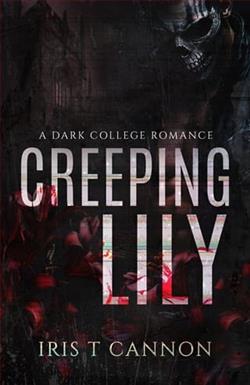Page 1 of A Court of Sugar and Spice
1
The house rears up, mountainous and morose, craggy with dormer windows and crooked little slanted roofs and odd bits of towers, like pointed noses. It seems to peer down unhappily at Louisa and me, despite the fact that both of us have dressed impeccably for our arrival.
“I still say we don’t need a guardian,” mutters Louisa.
“Of course we don’t. We’re both over twenty. But we have no money, no place to go, and no useful skills.”
“Your paintings—”
“Painting is not a useful skill.” I taste the bitterness of Papa’s frequent reminder on my tongue. Art does not pay. Not in this district. And due to the unreasonable conditions of Papa’s will, I won’t be able to afford to leave this district for another few years.
Louisa and I have been barred from accessing our inheritance until we turn thirty or until we marry, whichever comes first. In the meantime we are to live with a man Papa appointed as our guardian many years ago—our godfather, Uncle Drosselmeyer.
“Must we call him our uncle, though?” asks Louisa. “He isn’t, not really. Just an old friend of Papa’s.”
“I suppose we’ll call him whatever he wants to be called,” I reply vaguely, occupied with counting our bags and trunks. The carriage driver doesn’t wait for me to ascertain that we have everything—he merely chucks the reins and urges the horses ahead, as if he’s eager to be gone from this place before nightfall. Fortunately all our luggage is accounted for.
“Come on, then. Might as well get it over with.” Louisa hoists two bags over her shoulder and picks up a suitcase.
Other visitors to this house might have waited for the servants to help with the luggage, but Louisa and I are used to doing everything ourselves. Papa didn’t trust servants, nor did he care to spend money on paying them when he had two perfectly good daughters to handle the chores.
“If only we could earn the money to move to Engelbourg, just the two of us. We could hire ourselves out to cook or clean.” I pick up a carpetbag and drag our trunk by one handle. “Or mend. I can mend clothes.”
“I doubt our guardian will take kindly to his wards scrubbing privies and floors.” Louisa wrinkles her nose. “As for me, I plan to marry quickly so I can get my money.”
“I’m not sure how many prospects you’ll find here.” With a grating lunge, I haul the trunk up the last stone step and pause, turning to survey the countryside around us—a bleak expanse of brown fields, leafless gray trees, dark distant moors, and black hills in the far distance, beneath a soggy gray sky.
“It’s rutting unfair, that’s what it is,” moans Louisa, turning her back to the front door and following my gaze. “Not a house to be seen. Not even a barn with a strapping stable boy, or a flock of sheep with a virile young shepherd.”
“Would you listen to yourself? You can’t speak like that here. Uncle Drosselmeyer sounds like a very proper older gentleman. He must be, if he was Papa’s dear friend.”
“You’re right. I can’t imagine Papa having a rake of a friend with loose morals.” Louisa pushes out her lower lip. “That would have been so interesting, though! I could have seduced him, and—”
“Seduced me?” says a low voice behind us. “Gracious, how shocking.”
I whirl, my stomach plummeting. While we were gazing at the countryside, one of the large double doors behind us opened without so much as a squeak, and in the aperture stands a lean man in a dark suit. The suit isn’t any style I’ve previously seen—it has multiple standup collars, their corners bent at random angles, and his entire tailcoat is slashed with pockets and rows of buttons in odd places. The cuffs splay wide, framing thin fingers laced with delicate brass rings, some featuring tiny gears or miniscule gems.
Uncle Drosselmeyer’s face is narrow, with sharp triangular features and thin, compressed lips. He wears thick, brass-rimmed spectacles and sports a neat brown beard. It’s difficult to tell his age.
“I’m so sorry,” I gasp. “Don’t mind Louisa, she—she—”
“I’m quite out of my mind,” my sister says cheerfully, thrusting out her hand. “I often say the first thing that pops into my head. You must learn not to pay me any attention.”
Drosselmeyer steps forward onto the snowy doorstep, taking the other handle of the trunk I’m dragging. “I make it a habit to always pay attention when a woman speaks to me. It’s the ones who are out of their minds who have the most fascinating and insightful things to say.”
“I like you,” Louisa waggles a finger at him, smiling. “Yes, I think we’ll get along just fine.”
She hustles inside with her share of the baggage, and Drosselmeyer helps me with mine.
“Thank you for opening your home to us,” I say. “I know it must be difficult, making space for two strangers.”
“We may never have met in person, but I feel as if I know you both,” he says. “Your father wrote letters about you, from the time you were very young. You might be surprised how many stories I know from your childhood.”
“Oh.” I can’t decide if this revelation makes me feel more secure or uncomfortable.
“I’m sure Papa had plenty to say of me!” Louisa is darting from side to side of the entry hall, inspecting the giant portraits of moody ancestors. “Clara never does anything remotely rebellious. And everyone knows it’s the rebels who make the best stories.”
“He had plenty to say about both of you,” Drosselmeyer replies. “Put your luggage on this platform here, and step back, if you please.”















